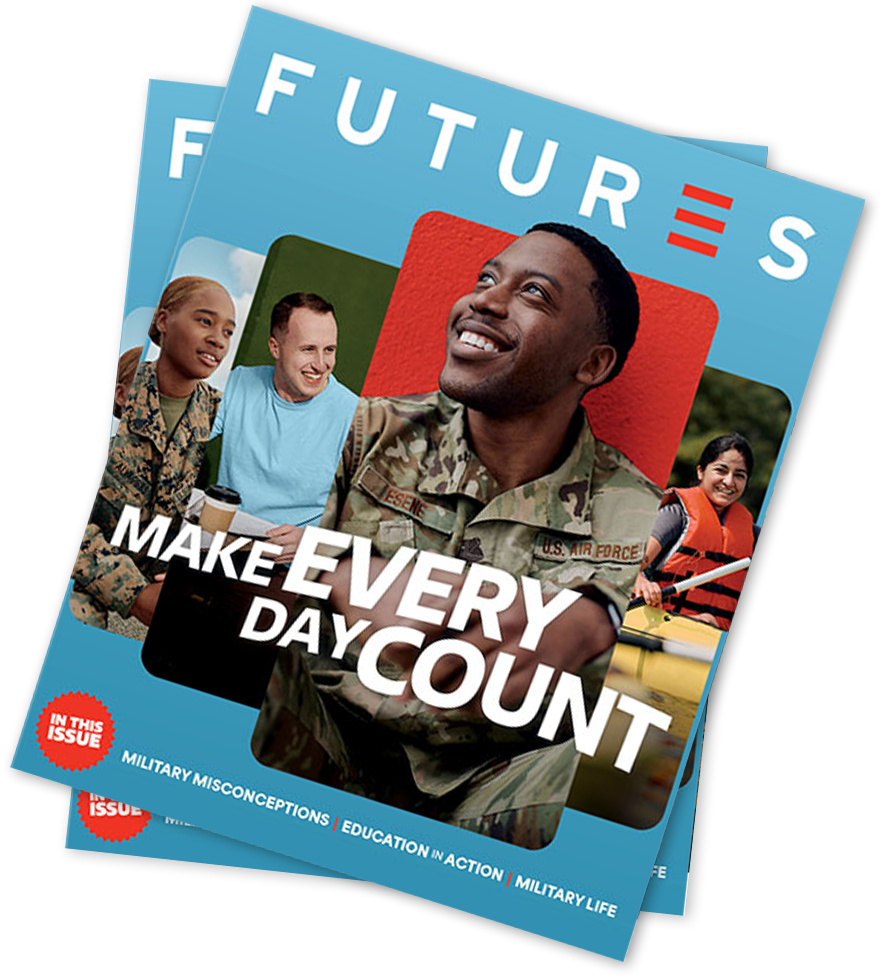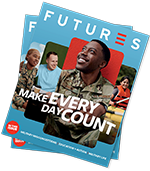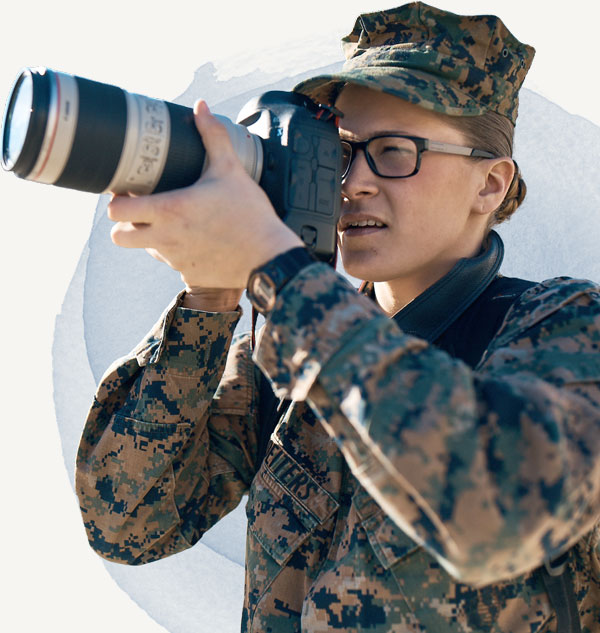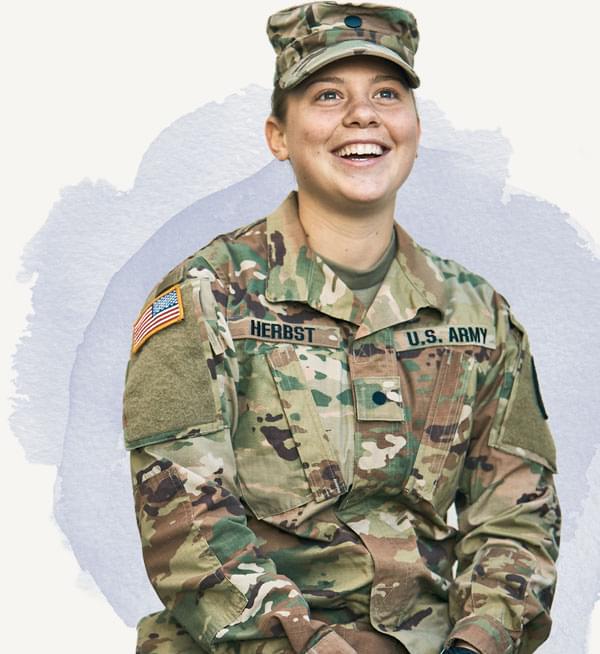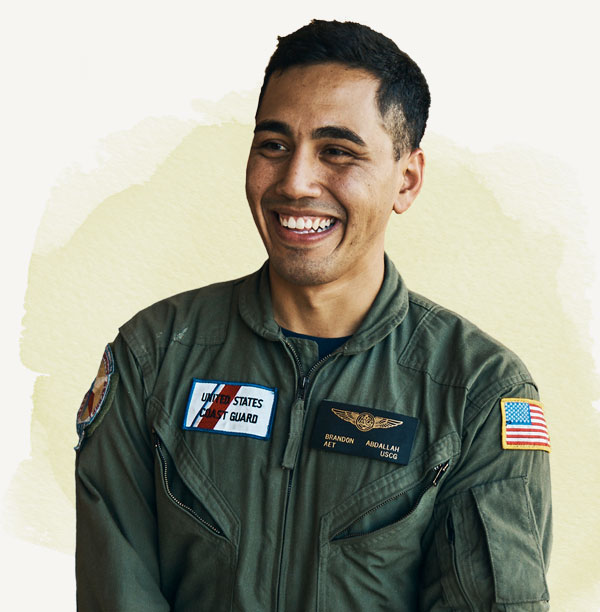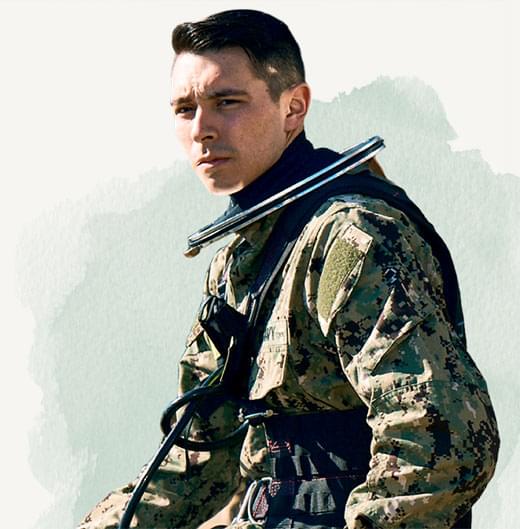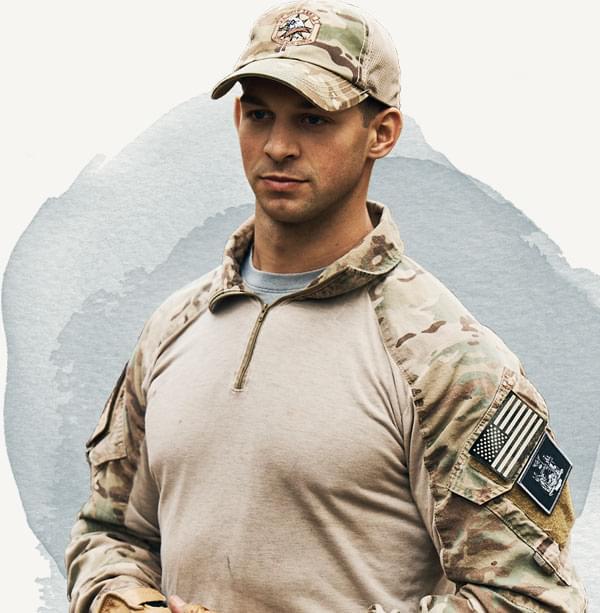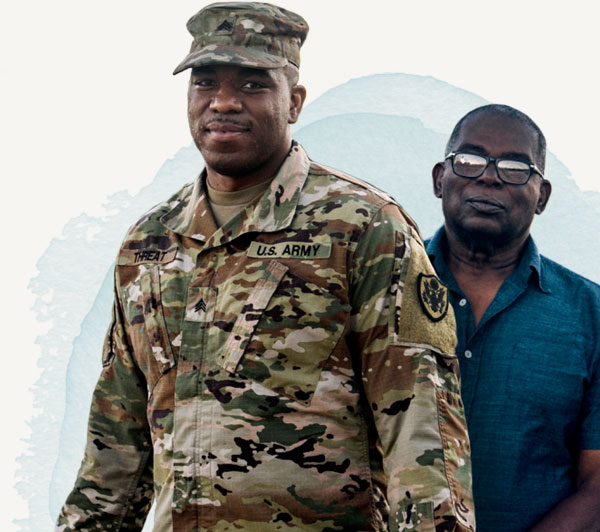Camouflage Not Required: DOD Helps Students Plan for Civilian, Military Careers
Department of Defense | Dec. 11, 2023

Photo By:Joseph Clark, DOD
The Defense Department is partnering with educators and guidance counselors at one of New York City's largest high schools to help students plan for their future, regardless of whether that path leads to a career in the military or as a civilian.
Last month, students from Fort Hamilton High School gathered for a career workshop after taking the Armed Services Vocational Aptitude Battery, the entrance exam used by all services to determine enlisted candidates' knack for specific military career fields.
The workshop was part of the ASVAB Career Exploration Program, a nationwide program that allows students to explore civilian and military career fields that align with their aptitude and interests by leveraging the military's time-tested formula for gauging occupational talents.
Senior Anna Chiu is already well on her way to college, but she said she didn't want to pass up the opportunity to learn more about hidden talents as she honed in on a career path.
"I decided to take the ASVAB test mainly because I am a very indecisive person," said Chiu, who plans to pursue a career in forensic science. "I wanted to see what kind of options were still available to me."
In addition to her penchant for science, technology, engineering and math her ASVAB test results revealed an aptitude for less technical subjects.
"I kind of anticipated this," she said. "But I still do feel like I am still set on a path for more STEM-related fields."
Chiu said she has applied to more than a dozen colleges for next fall and, at this point, a career in the military is not in the cards.
Yet, students like Chiu are exactly who program facilitators hope to attract.

Photo By:Joseph Clark, DOD
Emirita Desouza, who manages the Career Exploration Program for the New York City area and is the facilitator for the Fort Hamilton High School workshop, said her goal is to give educators and students career planning resources – even if the students don't see themselves joining the military.
"Our program is simply a program that aims to offer educators career resources to help their students and enhance the good that they are already doing," Desouza said. "It's about offering them these resources that the federal government, the DOD, has invested in to help students plan for their future."
As part of the program, students are first administered the full ASVAB, which measures the test taker's aptitude across a variety of domains that range from word knowledge and paragraph comprehension to arithmetic reasoning and mechanical comprehension.
Parents and school administrators can decide whether the students' scores are released to military recruiters.
Should the student decide to pursue a military career in the future, the scores remain valid for up to two years. The students can also use the exam as a baseline to see where they can improve if they choose to retest.
Regardless of whether the students elect to release their scores to recruiters, they are provided with a summary of their scores. These are used as a guide for further career exploration during the workshop.
Those scores are broken out into career exploration scores, which identify the student's strengths in verbal, math and science and technical skills as compared to their peers.
Test takers are also provided with their scores for each subtest, which shows how they perform compared to others who have taken the battery and their percentile relative to others in the same grade.
Additionally, the students are provided with their military entrance score, or Armed Forces Qualification Test, which is derived from each subtest and used by each service to determine enlistment eligibility.
Once the scores are compiled, the students are guided through a workshop where they learn how to interpret their results and are guided through a comprehensive exploration of career interests and avenues to pursue these interests.
Those avenues may include service in specific military occupations that align with those interests or other civilian pathways to help the students reach their goals.
That exploration is enabled by an online suite of personalized career planning tools, which enable the students to create career plans and further evaluate their options for post-secondary education, civilian careers and military or federal service.
Students maintain access to the online tools for up to two years following the workshop.





Desouza said the program is unique in its use of the ASVAB to determine participants' occupational aptitude and in the comprehensive approach to career planning.
The program can also serve as great exposure for what a career in the military has to offer.
Desouza said that during the program many participants learn for the first time about the wide variety of professions in the military. She said students are often surprised to learn that a career in the military is not just for those who want to carry a rifle on the frontlines.
Many realize for the first time that they can be a chef, musician or even a flight attendant while serving in the military, she said.
"So long as they are open to learning and exploring what it's about, I think that's the big part," Desouza said. "And this program actually gives them that opportunity."
Ricky Zheng, a junior at Fort Hamilton High School, said he's considering serving in the National Guard or pursuing an ROTC scholarship after high school. He said the workshop was helpful in deciding on a path forward.
"It helped me find out which military path I want to go for and my job interests in the future," Zheng said.
Steven Alcaide, another junior interested in a career in the military, also said the workshop helped him make his decision.
"I wanted to see what was going to be on the test to see what career options I have in the future," he said.
He added that taking the test enabled him to see what areas he can improve on if he decides to retake the test in the future.

Photo By:Joseph Clark, DOD
But those interested in pursuing careers in the military were by no means the only ones who chose to participate in the workshop.
Many of the students were interested in pursuing college after graduation. One student said he wanted to eventually become a pharmacist.
Desouza's own daughter took the ASVAB and participated in a similar workshop while she was a student at Susan Wagner High School on Staten Island. She is now in law school after completing her undergraduate degree.
"She had no interest in the military," Desouza said, but added that the program gave her the resources to plan her path.
"As a parent, myself, I learned a little bit about the military," Desouza added. "I was not with the [ASVAB CEP] at the time; however, I found that it was definitely helpful because it opened those doors and provided resources for how to plan and have a backup plan."
Educators say career planning is critical for setting up students for success after high school and for keeping them engaged.
"If they don't have a specific post-secondary plan — whether it's two-year college, whether it's vocational school, whether it's the military, getting their [associate degree], whatever it is – if they don't have that specific, goal-oriented mindset, they start to trail off," said Gregory Abood, Fort Hamilton High School's assistant principal for the social studies department.
"It's really important to make sure they have a definitive plan in place for them after high school," he said. "This helps with that."
Abood said while the school uses a variety of resources to help students plan for their future, the ASVAB CEP is unique in its granularity.
It's a useful tool, he said, the school can use to set up their students for success no matter where their goals take them.
"Some students [...] if they hear it's … then they might be a little nervous," he said. "It just takes clarification on our part in order to prevent students from being dissuaded."

